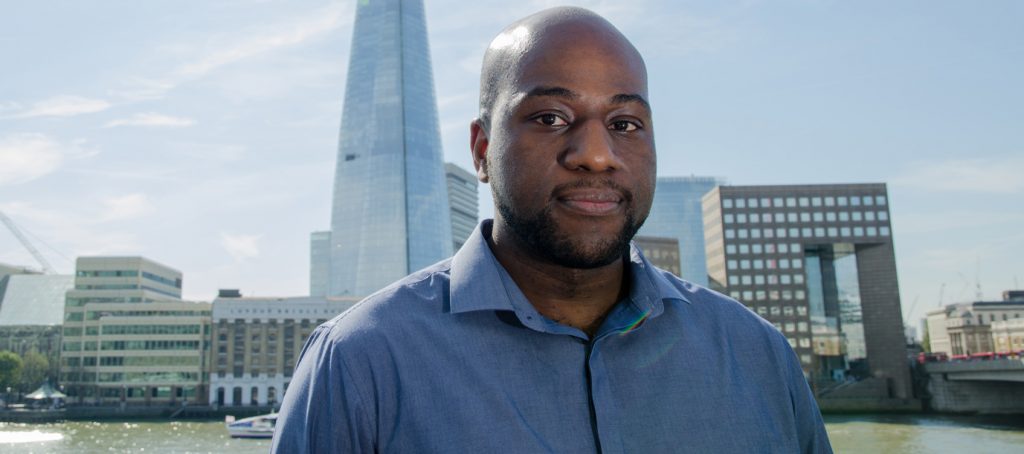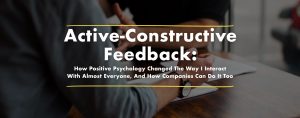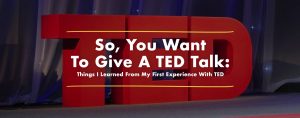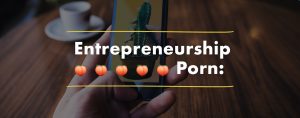Most of the 10% entrepreneurs I’ve featured in this blog are at an advanced stage of their 10% projects. There is a lot we can learn from already-established ventures to apply it from the beginning. But, what about people who are getting started? What are their motivations and dreams at that early stage? How are they building their 10%?
Meet Eyram Adjogatse, a strategic consultant based in London, England. He's taking a different approach to build his first 10% entrepreneurship. Inspired by The 10% Entrepreneur and my interview with London Real, he'll build his 10% project while traveling around South America.
I first heard about him from a friend of mine, who connected us when he found out about Eyram’s interest in 10% entrepreneurship. His enthusiasm and drive to start a company based on his own Ph.D. research sounds fantastic.
If you’re a beginner in the 10% world, you’ll find a kindred spirit in this article, with whom you’ll connect right away. If you’re already “at it” as a 10%-er, his answers will serve as a reminder of why you got started, for an extra jolt of motivation to go on.
Sounds interesting? Read on.
1. How did you find out about Patrick?
I saw Patrick giving an interview on the YouTube channel of London Real. By then, I already knew that I wanted to start an entrepreneurial venture alongside my full-time job, so the title of that interview - “The 10% Entrepreneur” - caught my attention. After watching the interview, I purchased and read Patrick’s book, which had a lot of great ideas in it. Whilst on vacation in New York, I was sitting in a bar mentioning one of these ideas to a friend I had made. When I mentioned the book, I heard the reply: “That’s my buddy! I know Patrick well”. It really is a small world. My friend put me in touch with you, and here we are!
2. What elements from the 10% philosophy were crucial to get you started?
The 10% philosophy presents a framework I can use to maintain a business whilst working full time. Another interesting element is the idea that I can apply 10% of different types of my capital, whether intellectual, financial or other, to entrepreneurship. Before, the only element that I had considered was time. Thinking more about this has helped me to decide what I should focus on myself and what I should outsource/delegate.
3. What is your plan to get started as an entrepreneur?
What I’m going to do is to work as an entrepreneur in three stages. In the first one, I’ll focus on setting up my venture in London. I’ll speak to potential advisors and conduct research, while working as a freelance consultant.
In the second stage, I’m combining my venture with a life-long dream of mine, which is to travel around Latin America. While I’m visiting several countries, I’ll be keeping up with my 10% project on the road via internet.
Even though I’ll be away during this second stage, I plan to leverage the resources of advisors and collaborators to take my venture forward, in a way that allows me to spend time focusing on the aspects that interest me.
Once I return to the U.K., I plan to go back to a full-time job while keeping up with my venture. On this third stage, I’ll scale back to 10% entrepreneurship as my project grows.

4. What will be your venture about?
My venture is focused on the pharmaceutical industry. I’ve based it in the research that I was conducting as a PhD student several years ago. If successful, the end product would be a new drug to treat a parasitic disease called trypanosomiasis.
Since childhood I have dreamt of being in a position to impact millions of lives through medical research. Pharmaceuticals became my area of focus for this, and I know that in the long-term I would like to run a business that focuses on pharmaceutical R&D for multiple diseases. Whilst my current venture doesn’t match this dream exactly, it is a big step towards that goal. I consider this my “training MBA”.
5. What motivates you to explore entrepreneurship full time first?
I have had some past experience of the following:
• Studying full-time and working part-time
• Working full-time and writing a doctoral thesis part-time
• Working full-time and writing academic papers part-time
In each of those cases, the full-time activity was intense, and sometimes unpredictable. As a result, it was always very challenging to maintain the part-time activity. My main motivation to explore full-time entrepreneurship first, is time. It would be helpful to have more time to get my venture set-up, before I start to maintain it as a part-time, or 10% activity.
6. What convinces you that you can succeed? What gives you the confidence to actually try and go for it?
In my last job, I had the privilege of working for a small firm where I had a lot of responsibility from the start. Supervising large projects and several parts of the consulting business gave me confidence to start something myself. Despite the confidence I gained from doing this, there is still considerable risk in what I am doing. However, a good way to get over the hesitancy towards risk-taking is to consider the worst-case scenarios. After thinking through a few of them, I realized that none of them were that bad.
Also, the business plays very well to my education and my professional experience. I have a network of contacts at the University College London (UCL, where I got my PhD) and other institutions, in addition to contacts that I have made in the Pharmaceutical industry. My former colleagues have also offered to put me in contact with entrepreneurs and investors in their networks.

7. What drives you to travel while building your venture? In what way do you think it will be different than starting from home?
I have wanted to travel around Latin America, for the experience and lifestyle, and because I am considering living there in the future. Whilst traveling would mean that I have a lot more free time, I realized that life may be less predictable, but I’m confident that I’ll be able to make it work. I have been lucky enough to come across traveling entrepreneurs in the past, so I have seen that it is possible.
I expect that traveling around Latin America may mean that I spend less time in one place, which could be distracting. But, being away from my usual environment will remove a lot of distractions, force me to adopt new habits and encourage me to think differently.
8. Why are you scaling back to part time entrepreneurship after your trip?
My venture involves pharmaceutical R&D, which can take many years to get off the ground. As I am starting from a very early stage, it will take more than one year before the venture requires my full attention. Therefore, I would like to continue it as a 10% activity whilst working full-time. Having a full-time job when I return can still offer me a lot of benefits, in terms of stability, experience and contacts.
9. What kinds of resources are you bringing as an entrepreneur? time, money, skills…
As an entrepreneur I will bring time, money and skills. In the beginning, I will bootstrap everything whilst seeking help from advisors and outsourcing specific tasks. I have a lot of subject area-specific skills that I bring to the table. If there are opportunities for growth in this venture, then I'll need to outsource more, or even employ people full-time. At this point, the nature and importance of my resources will change; I’ll need to focus more on developing skills such as leadership and project management. I will most likely need money from external sources to grow.
10. Can you name other entrepreneurs who have inspired you?
It is hard to name specific people that have inspired me. I try to take lessons from famous entrepreneurs, such as Elon Musk, Steve Jobs, Bill Gates, etc. More recently, I have drawn ideas from people like Tim Ferriss and the founders of location-independent businesses like GitHub and Buffer.
Yet, I have encountered the most important sources of inspiration in my own life. Some of the professors at the University of Nottingham, where I completed my undergraduate degree, started and maintained companies, whilst giving lectures and marking papers. I remember that I started to consider the entrepreneurship path from that time.
Living in London, I come across many people who have created businesses at various scales. One such person, who is also a good friend, started a business on the side and later left his job as a dentist to pursue his business full time. I recently asked him about his business and he told me that he was selling it. I was shocked and asked: “But, I thought that was your baby?!” He replied: “Well, I always saw that business as my training MBA”. That conversation turned on a light bulb in my head, and I decided that I should do the same, instead of waiting to gain more experience as an employee working for someone else.
Do you have any advice or encouragement for Eyram? Tell us in the comments below.




